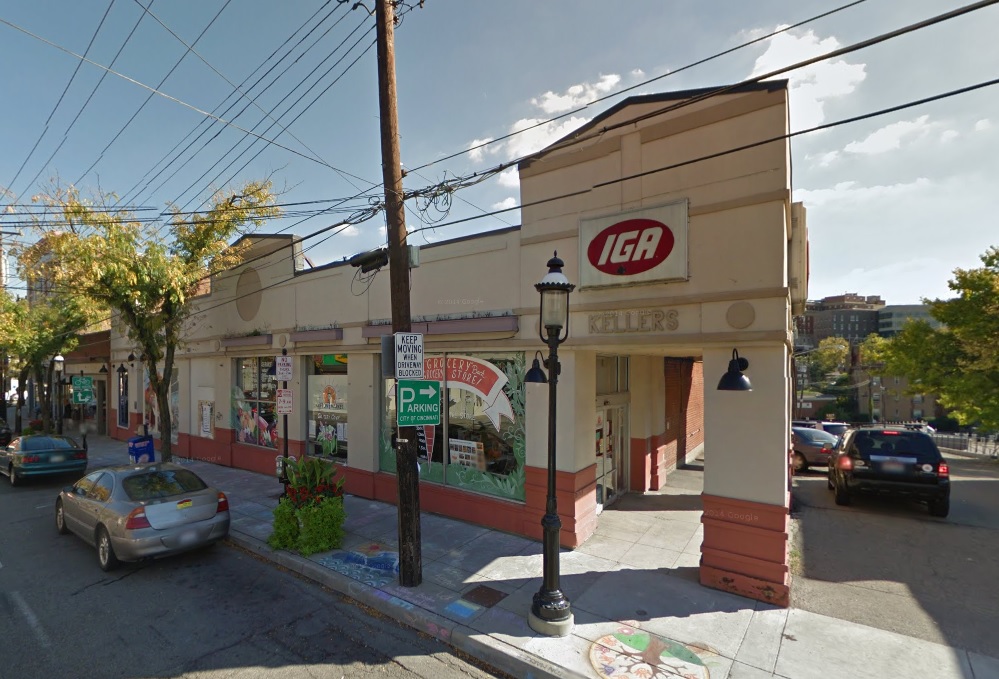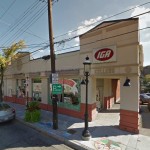Cliftonites who have raised more than $1 million to establish an “uptrend” neighborhood grocery store got a big boost of support from the City last Monday.
Cincinnati City Council’s Budget and Finance Committee considered a motion by Vice Mayor David Mann (D), who also resides in Clifton, to include a $550,000 loan to the Clifton Market co-op in the fiscal year 2015-2016 budget. While this idea received general support at the time, it was put on hold for further vetting.
City Manager Harry Black’s proposed budget, which was released on Wednesday, included no line item for this project.
To date, 991 people have paid $200 for a share of the $5.6 million market, which would occupy the 21,972-square-foot space, at 319 Ludlow Avenue, that formerly held Keller’s IGA.
Keller’s IGA closed in 2011, and the community has been unsuccessful in several attempts since then to reestablish a neighborhood grocery store there, including local grocer Steve Goessling who sold the building to the Clifton Market group last month.
No grocery store exists within 1.7 miles, and some of the investors live in nearby neighborhoods.
“They all look to getting Clifton Market up and running as a kind of beacon of hope for getting groceries in their neighborhood,” said Charles Marxen, a field director for Clifton Market who often spends time in the newly-bought building to answer residents’ questions. “Having a grocery in this central location is pertinent to the success and well-being of all of the communities around Clifton.”
Adam Hyland, chair of the Clifton Market board, said that the project would restore the economic engine of the business district. He also said that the closure of Keller’s resulted in a 40% drop in business for Ludlow Avenue establishments.
“It was a social space for the community,” he said. “It was an important place for neighbors to see each other and come together.”
Hyland estimates that the new grocery would create between 60 and 70 jobs, and market studies show that it could attract about 15,000 shoppers per week. Financial estimates show that the group could see $13 million in revenue within the first year.
Brian Frank, co-chair of the Food Action Team of local sustainability network Green Umbrella, added that food co-ops have nearly three times as many local food producers contributing as the average major grocer. They also get more than three times of their inventory from local companies, have higher wages, and provide more healthcare benefits.
“Co-ops may be new to Cincinnati, but this sort of an organization has a national presence in our country,” he said. “There are [grocery co-ops in] 38 states that represent $1.7 billion of economic development across this country.”
Councilmember Chris Seelbach (D) was skeptical at first, but changed his mind when he heard that the co-op had a bank on board to support the project.
“They took it upon themselves, after the City tried unsuccessfully to find another person to operate the grocery store, to find a solution,” Seelbach clarified. “They’ve gotten a bank, whose sole purpose is to make money. Banks are not in the business of helping people open grocery stores. They may say that, but they’re not going to take a risk unless the risk is a good one.”
Both Charlie Winburn (R) and Wendell Young (D) also voiced their support for the specific plan, and the actions being taken by the Clifton community.
“What’s really good that’s going on here is that people in Clifton have made it clear, in no uncertain terms, they want this grocery store,” Young said. “They’re not going to go away; they’re going to get that store. I think it would be a shame if we ignore all the hard work that has gone into making this happen by not doing our part to make sure that they’re successful in this effort.”
Several members of the committee, including Winburn, suggested that the funding package could be a grant, loan, forgivable loan, or a combination of several types. While Councilmember Yvette Simpson (D) was also on-board, she expressed a preference for a grant or forgivable loan due to tight profit margins for grocery stores.
Meanwhile, Winburn managed to cast both his doubts and support for the effort to bring a neighborhood grocery store back to Clifton.
“Be cool,” Winburn cautioned. “Be cool now, because you’re talking about the taxpayers’ money and loaning money, and we have to be fair in the process. I think it’s important that our excitement don’t get in the way of having this group having what we call proper vetting and due diligence.”
In lieu of a line item in the City’s budget, he also suggested that there may be grant money available through the Ohio Department of Development.



